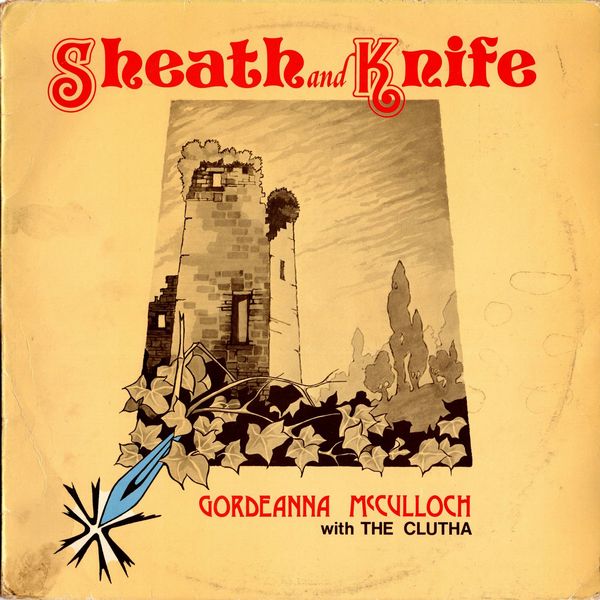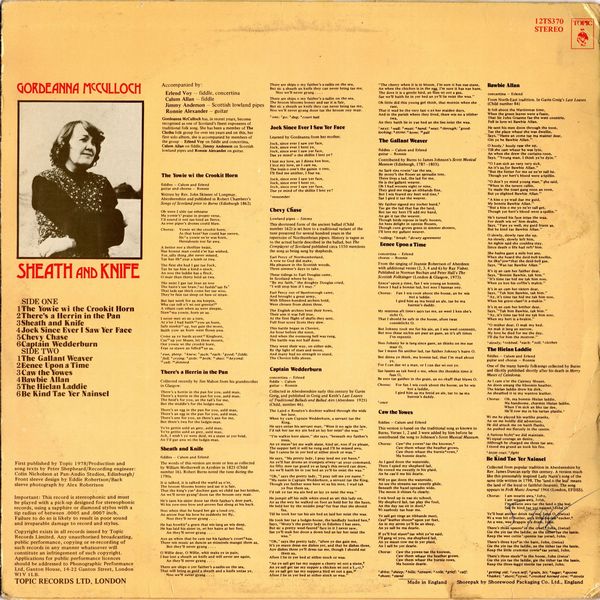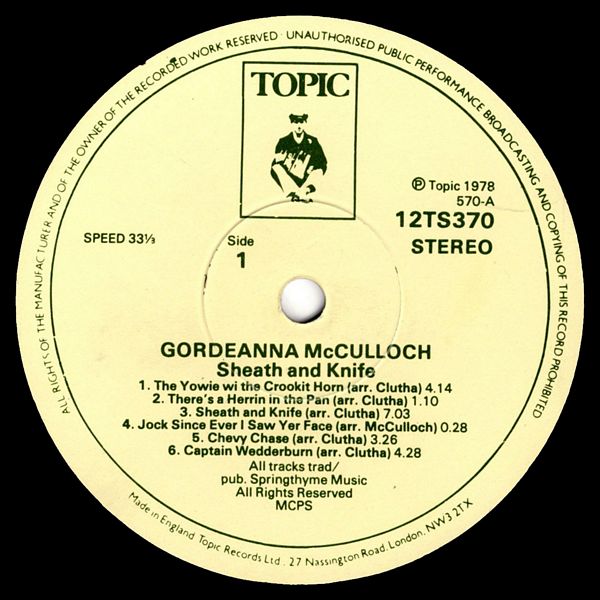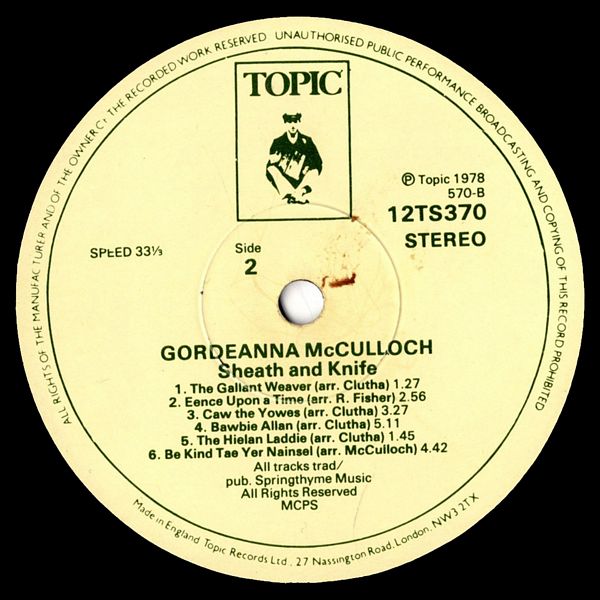
 |



|
Sleeve Notes
Gordeanna McCulloch has, in recent years, become recognised as one of Scotland's finest exponents of traditional folk song. She has been a member of The Clutha folk group for over ten years and on this, her first solo album, she is accompanied by members of the group — Erlend Voy on fiddle and concertina, Calum Allan on fiddle, Jimmy Anderson on Scottish lowland pipes and Ronnie Alexander on guitar.
The Yowie wi the Crookit Horn
Fiddles — Calum and Erlend
Guitar and Chorus — Ronnie
Written by Rev. John Skinner of Longmay, Aberdeenshire and published in Robert Chambers's Songs of Scotland prior to Burns (Edinburgh 1862).
There's a Herrin in the Pan
Collected recently by Jim Mahon from'his grandmother in Glasgow.
Sheath and Knife
Fiddles — Calum and Erlend
The words of this version are more or less as collected by William Motherwell in Ayrshire in 1825 (Child number 16). Robert Burns noted the tune during the 1790s.
Jock Since Ever I Saw Yer Face
Learned by Gordeanna from her mother.
Chevy Chase
Lowland Pipes — Jimmy
This shortened form of the ancient ballad (Child number 162) is set here to a traditional variant of the tune preserved for several hundred years in the repertoire of Northumbrian pipers, History is vague as to the actual battle described in the ballad, but The Complaynt of Scotland published circa 1550 mentions the song as being sung by shepherds.
Captain Wedderbum
Concertina — Erlend
Fiddle — Calum
Guitar — Ronnie
Collected in Aberdeenshire early this century by Gavin Greig, and published in Greig and Keith's Last Leaves of Traditional Ballads and Ballad Airs (Aberdeen 1925, Child, number 46).
The Gallant Weaver
Fiddles — Calum and Erlend
Guitar — Ronnie
Contributed by Burns to James Johnson's Scots Musical Museum (Edinburgh, 1787-1803).
Hence Upon a Time
Concertina — Erlend
Chorus — Ronnie
From the singing of Jeannie Robertson of Aberdeen with additional verses (2, 3, 4 and 6) by Ray Fisher. Published in Norman Buchan and Peter Hall's The Scottish Folksinger (London & Glasgow, 1973).
Caw the Yowes
Fiddles — Calum and Erlend
This version is based on the traditional song as known to Burns. Verses 1,2 and 3 were added by him before he contributed the song to Johnson's Scots Musical Museum.
Bawbie Allan
Concertina — Erlend
From North-East tradition. In Gavin Greig's Last Leaves (Child number 84)
The Hielan Laddie
Fiddles — Calum and Erlend
Guitar and Chorus — Ronnie
One of the many bawdy folksongs collected by Burns and illicitly published shortly after his death in Merry Muses of Caledonia.
Be Kind Tae Yer Nainsel
Collected from popular tradition in Aberdeenshire by Rev. James Duncan early this century. A version much like this presumably inspired Lady Nairn's song of the same title written in 1798. The 'land o the teal' means the land of the loyal or faithful (heaven). The song appears in Folk Music Journal 1966 (London, EFDSS).